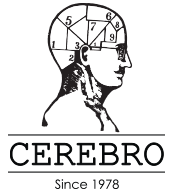Product Details
Biography of Conrad Weiser Perhaps the most fitting accolade bestowed on Conrad Weiser was by an Iroquois, who, speaking to white men upon the death of Weiser in 1760, lamented, "We are at a great loss and sit in darkness...as since his death we cannot so well understand one another." Who was this man who had such far-reaching influence on relations between Pennsylvania and the Iroquois Confederacy; who had access to provincial governors and sachems alike; who interpreted and negotiated treaties; who was commissioned an officer during the War for Empire; but who also sat as a country judge, served as lay minister, and prospered as a farmer, tanner, and storekeeper? Conrad Weiser was born November 2, 1696, in the German principality of Wurttemberg. By 1709, his father, Johann Conrad Weiser, had decided to heed Queen Anne's invitation to inhabitants of the Rhine Valley to migrate to England and to the British colonies in America. The Weiser family settled on the New York frontier and in the winter and spring of 1712-1713, young Conrad resided with neighboring Mohawks to learn the language of the Iroquois and serve as a go-between for the German community. During his years in New York, Weiser acquired a keen knowledge of the language, customs and statesmanship of the Iroquois Confederacy (or Six Nations), consisting of the Mohawks, Oneidas, Onondagas, Cayugas, Senecas and Tuscaroras. By 1723, Germans from the Mohawk Valley had begun the overland trek 400 miles, following the Susquehanna river to settle the Tulpehocken Valley in what is now Berks and Lebanon Counties, Pennsylvania. In 1729, Weiser brought his German-born wife, Anna Eve, and their children to the Tulpehocken region, settling on 200 acres near the present town of Womelsdorf. Over the next 31 years Weiser became a major land-holder, farmer, tanner and businessman. He and Anna Eve raised 14 children (seven of whom lived to adulthood). By the early 1730's, Weiser had become known in government circles in Philadelphia for his knowledge of the Iroquois. Provincial Secretary James Logan hired him to guide the new Pennsylvania Indian policy recognizing Iroquois dominance over the indigenous Lenni Lenape and guaranteeing a stable and safe frontier. Over the next two decades Weiser was constantly directing and implementing this policy through treaty negotiations, land purchases, and journeys to the Iroquois homeland. He worked closely with Shikellamy, who had been appointed by the Confederacy to embody Iroquois authority over the Lenni Lenape. It was through Weiser and Shikellamy that the Pennsylvania frontier remained stable and peaceful until mid-century. By 1755, however, growing competition between Britain and France had ignited a full-blown "War for Empire." Diplomacy was put aside as the Six Nations divided over which side to join. Meanwhile, the French established an alliance with the Lenni Lenape and other Native American peoples and launched raids against the eastern Pennsylvania settlements along the Blue Mountain line. Pennsylvania responded by forming provincial militia and building a line of outposts. In 1756, Weiser received a commission of Lieutenant Colonel with command of the 1st Battalion, Pennsylvania Regimen responsible for manning the line between the Delaware and Susquehanna Rivers. He held this post until 1758. In that same year an expedition to western Pennsylvania by General John Forbes resulted in the eviction of the French and an end to the fighting in eastern Pennsylvania. Throughout his life, Weiser was active in local affairs. He served as a magistrate for Lancaster County, helped found and lay out the town of Reading in 1748, helped to establish Berks County in 1752, and was its President Judge until his death. Though a Lutheran, Weiser joined the monastic community of Ephrata Cloister between 1735 and 1741. He lived intermittently as a celibate brother, withdrawing from family and political life until becoming disenchanted with the Cloister's leader Conrad Beissel. Weiser, returning to the Lutheran Church, in which he had served as a lay minister, became a founder of Trinity Church in Reading. His daughter Maria married Henry Melchoir Muhlenberg, "patriarch" of the Lutheran Church in Pennsylvania. At this death on July 13, 1760, Weiser owned several thousand acres, in addition to his farm, tannery and the store in Reading. Movements to honor Weiser's considerable accomplishments culminated in the establishment of the Conrad Weiser Memorial Park by the Conrad Weiser Memorial Park Association in 1928. The nationally known Olmsted Brothers landscape firm designed the park. Owned now by the Commonwealth, the Conrad Weiser Homestead is administered by the Pennsylvania Historical and Museum Commission, which preserves the restored Weiser structures, graveyard and landscaped park, in addition to interpreting Weiser's life. this biography is from www.berksweb.com/weisertext.html
 View Cart {{shoppingcart.totalQuantityDisplay}} Item(s)
View Cart {{shoppingcart.totalQuantityDisplay}} Item(s)
 View Cart {{shoppingcart.totalQuantityDisplay}} Item(s)
View Cart {{shoppingcart.totalQuantityDisplay}} Item(s)
